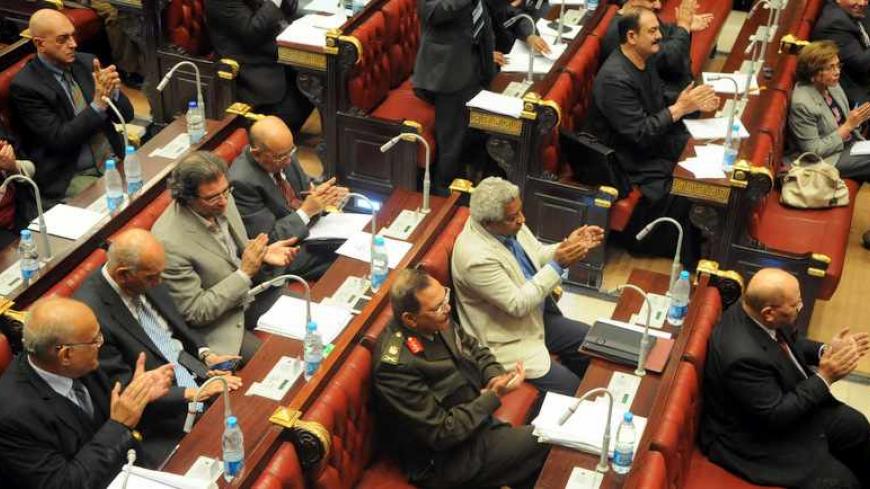Interim President Adly Mansour on Dec. 14 called on Egyptians to vote on the new constitution on Jan. 14-15, realistically calling it a “good start on which to build the institutions of a democratic and modern state." Mansour made sure to say that the constitution was the fruit of the struggle of the martyrs of the January 25 and June 30 “revolutions.” Giant banners also filled the country overnight, promoting “participation” in the referendum as saying “yes” to both January 2011 and June 2013 “revolutions,” perhaps in an attempt to strengthen the June 30 alliance and put an end to the feud between various camps within it. The banners stopped short of urging Egyptians to cast a “yes” vote to avoid accusations of the state to be leading the voters.
By saying that the new constitution is a “good start,” Mansour perhaps acknowledges that the new draft is far from perfect or ideal. This may be the secret ingredient required for Egypt to pass the second transition: a pinch of imperfection and realism. The realization that it could never fully satisfy everybody. That it can neither state that Egypt is a purely secular state nor an Islamist theocracy. Because in reality Egypt is neither. The constitution merely reflects the political setting which created it. Seculars were not happy that they could not include a clear article guaranteeing a “civil state” which was pushed to the preambles and diluted to “civil rule,” then “civil government.” Equally, some Islamists were unhappy for removing Article 219 through which the 2012 constitution gave a back door to an undefined huge body of so-called “Sharia” interpretations to become an integral part of the constitution, and Article 76 that provided another opportunity through which the same Sharia body would get back access to the penal code, enabling the judiciary to apply punishments without legislation. Both texts were removed in the new draft. In the same sense, the new constitution reflects the temporary political role of the military, which has a veto power over the appointment of its own head, the minister of defense, for two presidential terms — that is, eight years — setting up a third transition period for Egypt.



